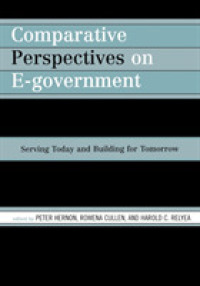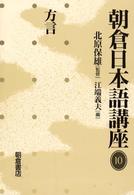Full Description
This volume provides a comprehensive and contemporary depiction of the swift evolution of learning technologies and the innovations that derive from their deployment in school education. It comprises cases studies, research focused on emergent technologies and experiments with existing tools in a wide range of scenarios. The studies included in this volume explore the conceptual and practical aspects of technologies that are used to support learning, with a multidisciplinary approach that encompasses all levels of education. The three sections of this volume emphasise the use of digital technologies from the viewpoint of different fields of expertise, explore multiple educational settings where technology was implemented to support the various stages of the learning process, and underline strategies, tools and technologies that play a crucial role in the professional development of teachers.
Contents
Part I - Exploring the use of Digital Technologies in School Education.- Chapter 1 - Digital ethnicity: Social belonging in the internet age.- Chapter 2 - The use of virtual reality at lower secondary schools.- Chapter 3 - Language and electronic medium skills development through autonomous and ideological practices.- Chapter 4 - Technology enhanced learning of motions based on a clustering approach.- Chapter 5- Comparing face-to-face to online instruction in secondary education - Findings of a repetitive factoral experiment.- Part II - Technology Supported STEM School Education.- Chapter 6 - Coding and computational thinking - using Arduino to acquire problem solving skills.- Chapter 7 - Learning through a "route planner" Human-computer information retrieval for automatic assessment.- Chapter 8 - Orchestrating outdoor location-based learning activities.- Part III- Teachers' Professional Development.- Chapter 9- Online professionallearning communities for developing teachers' digital competences.- Chapter 10 - Experiences of multimodal teaching through a serious game: meanings, practices and discourses.- Chapter 11 - The development of teacher leadership inventory in Malaysian educational context.







